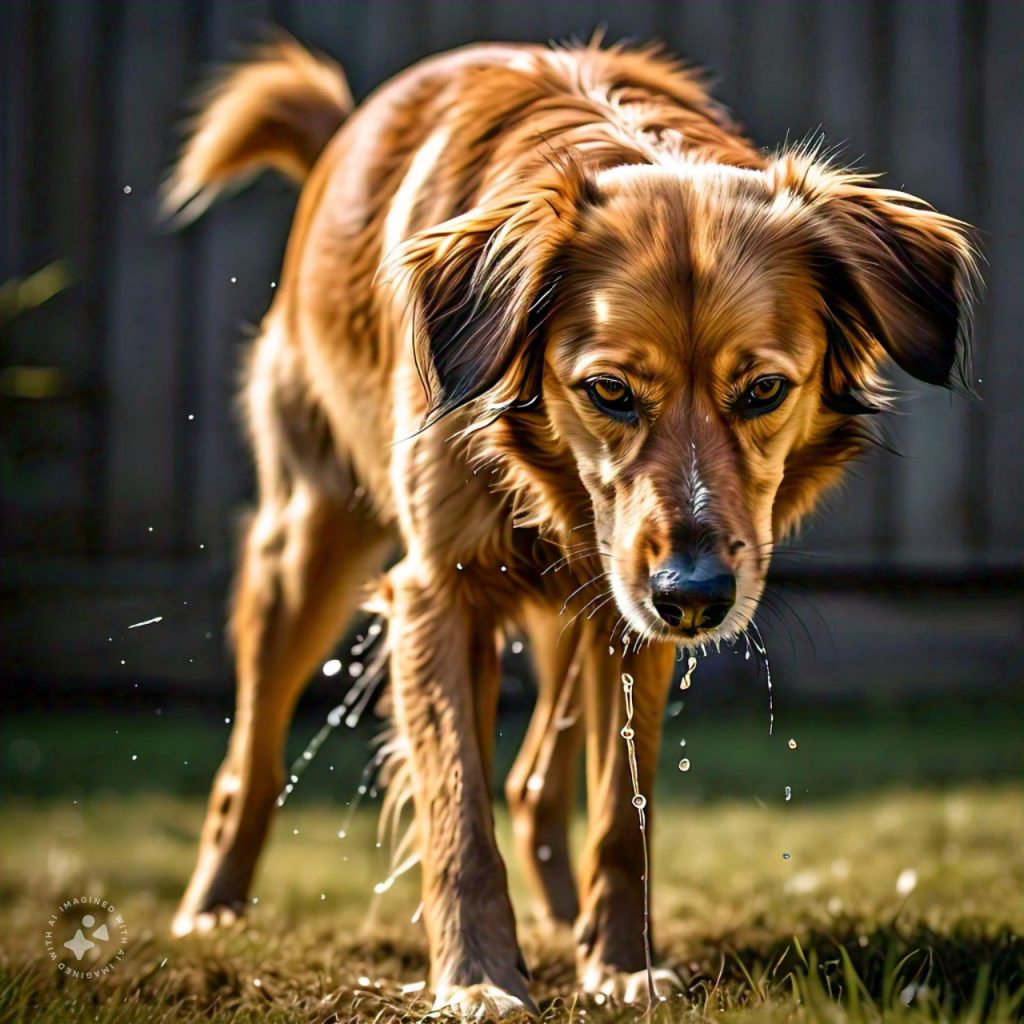Frequent urination in dogs can be concerning for pet owners. While it might seem like an inconvenience, excessive peeing, or polyuria, often signals an underlying health issue that needs attention. This guide explores the possible reasons your dog is peeing more than usual, symptoms to watch for, and steps you can take to address the problem.
Understanding Polyuria in Dogs
Polyuria refers to the production of abnormally large amounts of urine. It often goes hand-in-hand with polydipsia (excessive thirst), as dogs drink more water to compensate for increased fluid loss. Occasional increased urination might be harmless, but persistent or severe polyuria warrants a veterinary evaluation.
Common Reasons for Frequent Urination in Dogs
- Urinary Tract Infections (UTIs)
- Description: Bacterial infections in the bladder or urethra.
- Symptoms: Frequent urination, straining to urinate, accidents in the house, and blood in urine.
- Treatment: Antibiotics prescribed by a veterinarian.
- Diabetes Mellitus
- Description: A condition where the body cannot properly regulate blood sugar.
- Symptoms: Increased urination, excessive thirst, weight loss, and lethargy.
- Treatment: Insulin injections and a controlled diet.
- Kidney Disease
- Description: Impaired kidney function leads to an inability to concentrate urine.
- Symptoms: Increased urination, increased thirst, loss of appetite, and bad breath.
- Treatment: Specialized diets, medications, and fluid therapy.
- Cushing’s Disease (Hyperadrenocorticism)
- Description: Overproduction of cortisol due to adrenal gland issues.
- Symptoms: Frequent urination, increased thirst, pot-bellied appearance, and hair loss.
- Treatment: Medication or surgery, depending on the cause.
- Urinary Incontinence
- Description: Loss of bladder control, often seen in older or spayed female dogs.
- Symptoms: Dribbling urine while sleeping or lying down.
- Treatment: Medications to strengthen bladder control.
- Medications
- Description: Certain drugs, like diuretics or steroids, can increase urine production.
- Symptoms: Temporary increase in urination linked to medication use.
- Treatment: Consult your vet about adjusting the medication if necessary.
- Behavioral Issues
- Description: Stress, anxiety, or territorial marking can cause frequent urination.
- Symptoms: Urination in unusual places, especially during stressful situations.
- Treatment: Behavior modification and positive reinforcement training.
- Hormonal Imbalances
- Description: Conditions like diabetes insipidus affect hormone regulation of water balance.
- Symptoms: Excessive thirst and frequent urination with diluted urine.
- Treatment: Hormone replacement therapy or medications.
- Bladder Stones
- Description: Mineral buildup in the bladder, causing irritation.
- Symptoms: Frequent urination, straining, and possible blood in urine.
- Treatment: Surgery or dietary management to dissolve stones.
- Liver Disease
- Description: Liver dysfunction affects fluid regulation in the body.
- Symptoms: Frequent urination, jaundice, vomiting, and loss of appetite.
- Treatment: Dietary changes, medications, and managing the underlying cause.
Signs to Watch For
If your dog is peeing more than usual, monitor for these additional signs that could indicate an underlying issue:
- Increased thirst.
- Blood in urine.
- Straining or discomfort while urinating.
- Accidents indoors, even if previously house-trained.
- Unusual urine color or odor.
- Changes in appetite or energy levels.
Diagnosing the Cause of Frequent Urination
Your veterinarian will use a combination of the following methods to determine the cause:
- Medical History and Physical Exam
- Gathering information about changes in behavior, diet, and activity levels.
- Urinalysis
- Testing urine for infection, blood, crystals, or abnormal concentrations of glucose or proteins.
- Blood Tests
- Checking kidney and liver function, glucose levels, and hormonal imbalances.
- Imaging
- X-rays or ultrasounds to detect bladder stones, tumors, or abnormalities in the urinary tract.
- Specialized Tests
- Additional testing for conditions like Cushing’s disease, diabetes insipidus, or specific infections.
Treatment Options for Frequent Urination
Treatment depends on the underlying cause:
- Infections: Antibiotics or antifungal medications.
- Chronic Conditions: Lifelong management with medications, special diets, or insulin therapy.
- Behavioral Issues: Training, environmental adjustments, and calming aids.
- Surgical Intervention: For bladder stones or tumors.
Home Management and Preventive Tips
- Ensure Hydration
- Always provide clean, fresh water to prevent dehydration.
- Regular Veterinary Checkups
- Routine exams can catch issues early, especially in older dogs.
- Healthy Diet
- Feed your dog a balanced diet tailored to their health needs.
- Prompt Attention to Symptoms
- Address changes in urination behavior immediately to prevent complications.
- Stress Management
- Create a calm environment and reduce stressors that might lead to behavioral urination.
When to See a Veterinarian
Seek veterinary care if your dog:
- Shows signs of pain or straining while urinating.
- Has blood in their urine.
- Is urinating in unusual places.
- Displays other symptoms like vomiting, lethargy, or appetite loss.
Conclusion
Frequent urination in dogs can range from a mild inconvenience to a symptom of serious health issues. Understanding the potential causes and seeking prompt veterinary care can ensure your dog remains healthy and comfortable. Whether it’s a simple UTI or a more complex condition like diabetes, addressing the problem early can make a significant difference in your dog’s quality of life.

